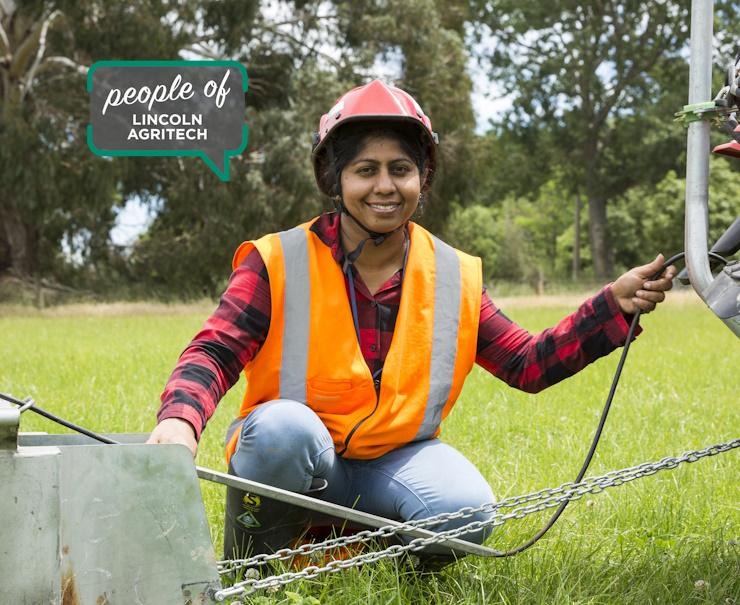Chavi Ekanayake
Precision Agriculture Scientist Chavi Ekanayake enjoys her job when research goes as planned – and even when it doesn’t!

I wanted to be a doctor when I was very young, but I figured out it was not the profession for me when I was in secondary school. I rather liked the idea of being an engineer. I had the choice of taking maths or biology subjects for my advanced level, but I ended up doing biology subjects and once I qualified for university entrance I finally decided to take up a degree in agricultural sciences.
I was always fascinated by how nature works. By studying biology, physics, and chemistry at school and university, I could understand and explore different aspects of nature in a more scientific way.
After migrating to New Zealand, I thought an internship would be a good idea to get insight into New Zealand agriculture and broaden my knowledge. I joined the Precision Agriculture group at Lincoln Agritech as an intern for six months, then I got a fixed-term contract and after that a permanent position.
In my job, I work in a quite an academic setting, but have the opportunity to go out and work in fields, nature, and laboratories.
My tasks can be varied depending on the project I’m involved in. I’m mostly involved with proximal sensing (e.g. commercially available crop sensors) research tasks, ranging from designing experiments, conducting field trials, and data collection in the field to project management and standard and geospatial data analysis. I use GIS (Geographic Information Systems) software a lot for data handling and analysis.
Our research focuses on developing methods and protocols for variable rate nitrogen fertiliser application in New Zealand’s intensive dairy pasture systems, using commercially available crop sensors. Our research can be theoretical or applied, trying to find solutions for the agricultural industry to improve efficiency and economic returns, and for better environmental outcomes.
It’s bit difficult to explain what I do to my 5-year old daughter! I have to tell her that not every scientist makes “portions” (according to her) of different colours in a lab, but we work in different ways to understand how things work.
What do you enjoy about your job?
Some days the job can be chaotic and demanding and some days can be relatively structured. I like the challenging and unpredictable nature of research – even though you may have planned everything, you should expect the unexpected. It’s satisfying when everything goes smoothly according to the plan and produces results as expected, but there’s a sense of greater achievement when things are successful in a more challenging way.
I enjoy learning many things by connecting with other people I meet in my career. I’m curious to find out what other researchers are doing and how science can be applied in thousands of ways to understand the world around us and tackle the challenges the planet faces.
What motivates you?
At work, but also in my life, I’m motivated by seeing my hard work and efforts make a positive impact or contribution in this world. In saying that, I treat failures as a chance to reflect, learn and move on. I like to give my best effort and care in every task I do, big or small.
What is the best thing that’s ever happened to you?
Having my two daughters is the best thing that’s ever happened to me. Having them in my life opened up a whole new perception of my life, as a person and as a parent. They inspire me to be the best version of myself and to realise how blessed I am at difficult times. I enjoy their pure and authentic expression of life in everything they do.
If I could change one thing about the world, it would be to give every child access to basic needs (food, shelter, clothing, education, medical care, protection from harm) to realise their potential in life. I think we have knowledge, technology and resources for this mission, but it is about being responsible and putting systems in place.


